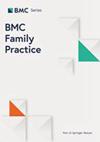Patient and relative experiences of the ReSPECT process in the community: an interview-based study
IF 3.2
3区 医学
Q1 MEDICINE, GENERAL & INTERNAL
引用次数: 0
Abstract
The Recommended Summary Plan for Emergency Care and Treatment (ReSPECT) was launched in the UK in 2016. ReSPECT is designed to facilitate meaningful discussions between healthcare professionals, patients, and their relatives about preferences for treatment in future emergencies; however, no study has investigated patients’ and relatives’ experiences of ReSPECT in the community. To explore how patients and relatives in community settings experience the ReSPECT process and engage with the completed form. Patients who had a ReSPECT form were identified through general practice surgeries in three areas in England; either patients or their relatives (where patients lacked capacity) were recruited. Semi-structured interviews were conducted, focusing on the participants’ understandings and experiences of the ReSPECT process and form. Data were analysed using inductive thematic analysis. Thirteen interviews took place (six with patients, four with relatives, three with patient and relative pairs). Four themes were developed: (1) ReSPECT records a patient’s wishes, but is entangled in wider relationships; (2) healthcare professionals’ framings of ReSPECT influence patients’ and relatives’ experiences; (3) patients and relatives perceive ReSPECT as a do-not-resuscitate or end-of-life form; (4) patients’ and relatives’ relationships with the ReSPECT form as a material object vary widely. Patients valued the opportunity to express their wishes and conceptualised ReSPECT as a process of caring for themselves and for their family members’ emotional wellbeing. Participants who described their ReSPECT experiences positively said healthcare professionals clearly explained the ReSPECT process and form, allocated sufficient time for an open discussion of patients’ preferences, and provided empathetic explanations of treatment recommendations. In cases where participants said healthcare professionals did not provide clear explanations or did not engage them in a conversation, experiences ranged from confusion about the form and how it would be used to lingering feelings of worry, upset, or being burdened with responsibility. When ReSPECT conversations involved an open discussion of patients’ preferences, clear information about the ReSPECT process, and empathetic explanations of treatment recommendations, working with a healthcare professional to co-develop a record of treatment preferences and recommendations could be an empowering experience, providing patients and relatives with peace of mind.病人和亲属在社区中对 ReSPECT 程序的体验:一项基于访谈的研究
英国于 2016 年推出了《急诊护理和治疗推荐摘要计划》(ReSPECT)。ReSPECT旨在促进医护人员、患者及其亲属就未来紧急情况下的治疗偏好进行有意义的讨论;然而,还没有研究调查过社区中患者和亲属对ReSPECT的体验。目的:探讨社区环境中的患者和亲属如何体验 ReSPECT 过程并参与填写表格。通过英格兰三个地区的全科诊所确定了持有 ReSPECT 表格的患者;招募了患者或其亲属(在患者缺乏行为能力的情况下)。我们进行了半结构式访谈,重点关注参与者对 ReSPECT 流程和表格的理解和体验。采用归纳式主题分析法对数据进行了分析。共进行了 13 次访谈(6 次访谈患者,4 次访谈亲属,3 次访谈患者和亲属对)。形成了四个主题:(1)ReSPECT 记录了病人的意愿,但与更广泛的关系纠缠在一起;(2)医护人员对 ReSPECT 的构思影响了病人和亲属的体验;(3)病人和亲属将 ReSPECT 视为拒绝复苏或生命终结表格;(4)病人和亲属与作为物质对象的 ReSPECT 表格的关系差异很大。患者重视表达自己意愿的机会,并将 ReSPECT 视为关爱自己和家人情感健康的过程。积极描述 ReSPECT 体验的参与者表示,医护人员清楚地解释了 ReSPECT 的流程和表格,分配了足够的时间来公开讨论患者的偏好,并对治疗建议进行了感同身受的解释。如果参与者说医护人员没有提供清晰的解释或没有让他们参与对话,那么他们的经历就会从对表格的困惑和如何使用表格到挥之不去的担忧、不安或责任感。当 ReSPECT 对话涉及对患者偏好的公开讨论、有关 ReSPECT 流程的明确信息以及对治疗建议的感同身受的解释时,与医护人员合作共同编制治疗偏好和建议记录可能是一种增强能力的体验,让患者和亲属感到安心。
本文章由计算机程序翻译,如有差异,请以英文原文为准。
求助全文
约1分钟内获得全文
求助全文
来源期刊

BMC Family Practice
医学-医学:内科
CiteScore
3.20
自引率
0.00%
发文量
0
审稿时长
4-8 weeks
期刊介绍:
BMC Family Practice is an open access, peer-reviewed journal that considers articles on all aspects of primary health care research. The journal has a special focus on clinical decision making and management, continuing professional education, service utilization, needs and demand, and the organization and delivery of primary care and care in the community.
 求助内容:
求助内容: 应助结果提醒方式:
应助结果提醒方式:


